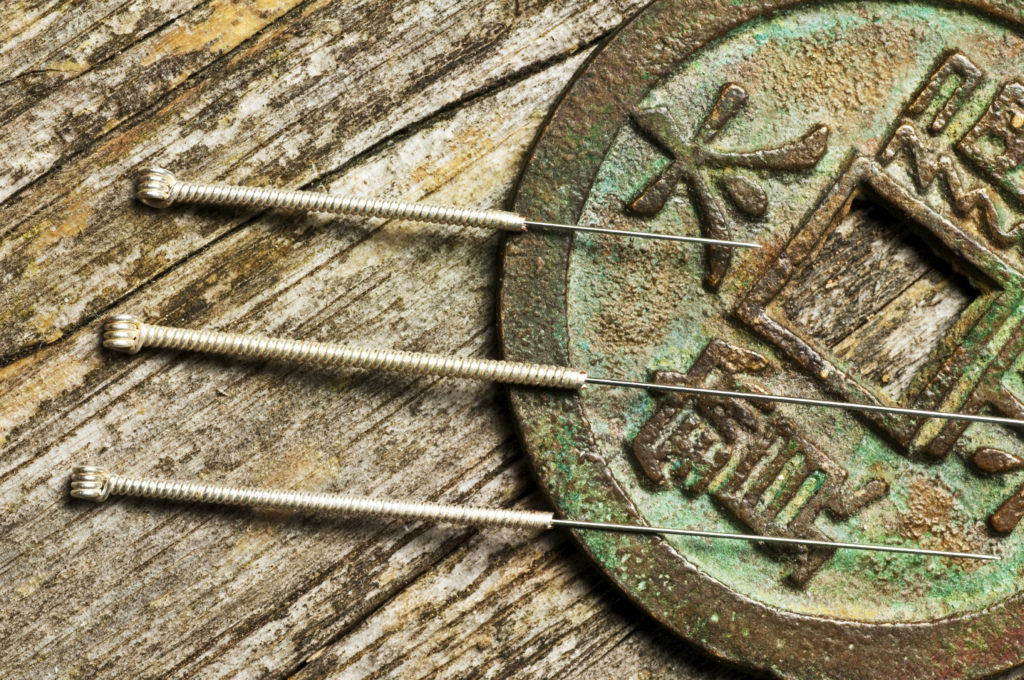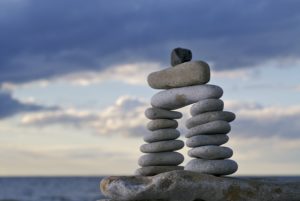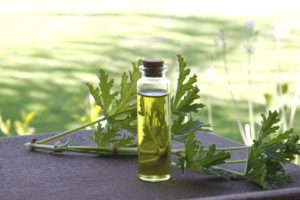
Natural Approaches to Improve Fertility
Balancing complementary and alternative medicine with Western Medicine
When I decided to get pregnant as a Solo Mom, I was told by my reproductive endocrinologist that my chances of conception with my own eggs were infinitesimally small. Yet I believed that if anyone could beat the odds, it would be me. I was a firm believer in complementary and alternative medicine (CAM) and had connections to many amazing healers.
For a year, I took copious supplements, radically changed my diet, went to acupuncture, and practiced qigong and meditation every day. I meticulously tracked every sign and symptom of my menstrual cycle to pinpoint ovulation precisely. It was a crushing blow that I still could not get pregnant with my own eggs. I did, however, get pregnant on the first try with a donor egg.
One might think that after my experience with alternative approaches to fertility, I would now be a skeptic. On the contrary: I still wholeheartedly believe that CAM has merit and a place in helping women attain pregnancy.
Many women report miracle stories of conception after trying alternative approaches, while for others, like me, it made no difference. So where is the balance? How can CAM help you conceive, and what are the limitations? Who might want to use CAM? What are some of the CAM approaches women try?
I believed that if anyone could beat the odds, it would be me. Share on XAllopathic fertility treatment
Modern fertility treatments are, no doubt, amazing. The fact that conception can take place in a petri dish is astounding in and of itself. The technological advancements available to women have allowed many women to conceive who otherwise may not have been able to. But, for some, allopathic treatment can be limited.
Pros to allopathic fertility treatment
- Is a sophisticated technology that helps many women get pregnant
- Can test many different measures of fertility—follicle-stimulating hormone (FSH), anti-Müllerian hormone, and other hormonal levels; blocked fallopian tubes; antral follicle counts; etc.
- Can predict statistical odds of achieving pregnancy
Cons to allopathic fertility treatment
- Relies on harsh drugs and technological interventions
- Views the reproductive system in isolation of other systems of the body
- Relies on statistics and data rather than on the individual situation
- May be denied in patients with very low statistical chances of pregnancy
- Is very expensive
Holistic or alternative fertility approaches
One of the central tenets underlying most alternative approaches to fertility is the idea that the reproductive system does not exist in isolation of the other systems in the body. It is intimately tied to overall health, stress levels, and, in particular, the endocrine and hormonal systems as a whole. As a result, CAM practitioners generally do not believe that one’s ability to conceive is static or fixed.
Innumerable books, such as Making Babies by Sami S. David and Jill Blakeway (Little, Brown and Company, 2009) and Fertility Wisdom: How Traditional Chinese Medicine Can Help Overcome Infertility by Angela C. Wu (Rodale Books, 2006), lay out regimens involving lifestyle and diet changes, stress reduction, acupuncture, qigong, and herbal combinations that have helped women do things such as lower their FSH, increase their antral follicle count, balance their hormones, reduce fibroids, etc., to attain pregnancy.
Julia Indichova, author of Inconceivable: A Woman’s Triumph Over Despair and Statistics (Broadway Books, 2001), gives a personal account of how she lowered her FSH levels and got pregnant after being told it was very unlikely. Since founding Fertile Heart, a community of women struggling with infertility, Indichova has helped many women overcome grim statistics from traditional fertility doctors after implementing lifestyle and dietary changes.
Pros to CAM
- Can be cheaper than traditional fertility testing and treatments, such as in vitro fertilization (IVF)
- Works to boost overall health
- Supports a broader perspective of health and fertility
- Believes that fertility can be altered with diet, herbs, lifestyle changes, and treatment
- Focuses on harmonizing all systems that work together to bring proper hormonal balance and function
- Can be used in conjunction with allopathic treatments with some indication that it boosts success rates
- Aids in stress reduction, which may play a major role in a woman’s ability to conceive
Cons to CAM
- In their desire to help, and genuine belief that they can, some practitioners may encourage women to keep trying naturally when there is little or no chance it will work
- Although there is copious anecdotal evidence, it often lacks hard data
Who might want to try CAM? Women who want to:
- Avoid drugs and technological interventions
- Try something else after being turned down for IVF or other interventions
- Augment traditional fertility treatments such as IVF
- Boost their overall health and reduce stress to improve fertility
- Prepare their bodies for a strong, healthy pregnancy
- Learn more about their menstrual cycle and ovulation
Stress reduction and fertility
It’s safe to say that infertility is stressful. Studies have shown that women facing infertility have the same levels of anxiety and depression as women with cancer, heart disease, and HIV. And the women in these studies are trying with a partner—not as Solo Moms.
Stress, whether it comes from trying to get pregnant or life in general, has been shown to make it more difficult to get pregnant. Stress causes the body to shut down resources to nonessential functions of the body, such as reproduction.
In her studies, Courtney Lynch has found that anxiety can prolong the length of time it takes to achieve a pregnancy. Women with the highest levels of stress biomarkers had a 29% decreased chance of getting pregnant, and their risk of infertility doubled.
Some critics attribute the success of CAM to stress reduction rather than the underlying theory of the practices. Regardless, stress plays a major role in pregnancy rates. But, unto itself, stress reduction may help improve your fertility.
Modalities used to improve fertility
Acupuncture. Acupuncture is, in many ways, the poster child for alternative fertility treatments. Many fertility clinics have their own in-house providers or a list of suggested providers because studies show increased pregnancy rates for women receiving acupuncture in conjunction with embryo transfer. (See the results from this study and meta-analysis.)
From the perspective of Chinese medicine, acupuncture works to restore qi, or the life force of the body, helping the meridians to properly circulate qi, thereby helping the whole system function more effectively. A more Western explanation focuses on the fact that placing small needles into the pelvic region can increase blood flow to the ovaries and uterus, improving ovulation and thickening the endometrial lining.
There is also some indication that acupuncture, in isolation of traditional fertility treatments, can improve fertility. According to acupuncturist Aimee Wells, who specializes in fertility, “Chinese medicine assists in optimizing egg quality, improving ovarian reserve, and balancing hormone levels by addressing the underlying causes such as organ health.”
Even some allopathic doctors, such as Raymond Chang, MD, a fertility specialist and acupuncturist, have found that acupuncture produces similar results to the popular drug Clomid. “When you compare the pregnancy rates for an egg-producing drug, such as Clomid, to acupuncture alone, the rates are equal—a 50% chance of pregnancy in three months for general patients—to those not undergoing IVF,” says Chang.
What the critics say about acupuncture
- There have been limited, randomized, double-blind placebo trials
- Sample sizes of studies are statistically insignificant
- Results of the German study have not been replicable
- More than likely harmless, even if it does not work to help attain pregnancy
Mayan abdominal massage. Mayan abdominal massage is thought to improve fertility by correcting the position of the organs. The deep belly massage increases blood flow, lymph, and qi to the pelvic area, improves the health of the supportive ligaments, and, in some cases, can correct blocked fallopian tubes.
In her article for the Huffington Post called “Maya Massage: A Healing Practice Every Woman Should Know,” Monique Minahan heralds the benefits of Mayan massage, which can help with a prolapsed uterus, menopause, postpregnancy recovery, and digestive and reproductive issues.
Herbal medicine. Herbal medicine has been used for centuries throughout many cultures to treat women’s health and reproductive issues. Most herbs aim to naturally cleanse the organs and restore hormonal balance and endocrine function. They can also improve circulation to the reproductive organs, relieve stress, and improve immune function.
The list of helpful herbs can be endless. Some of the most common fertility herbs, such as Maca, have been shown to increase egg health. Others, such as raspberry leaf, are used as a uterine tonic. Nettles, red clover, and chaste tree (or Vitex) are known to balance the hormones and glands associated with reproduction.
Many herbs are available that can be prescribed by an acupuncturist, Western herbalist, or even a naturopath. Be sure to consult an herbalist trained in reproductive issues to determine what combination of herbs may be useful for your particular condition.
Naturopathic medicine. Naturopathic medicine (or naturopathy) seeks to find the underlying cause rather than simply addressing the symptoms. A naturopath that specializes in fertility will likely address your neuro-endocrine-hormonal balance. Because they use many different methods, such as nutritional support, herbal remedies, homeopathy, and acupuncture, a naturopath can help you oversee and coordinate various treatment options.
Tracking your cycle. If you want to remain as natural in your approach as possible and avoid interventions, you can do intrauterine insemination (IUI) with a home midwife or an OB/GYN. To increase your odds, you need to pinpoint ovulation precisely so that you can time inseminations carefully. You can do this by learning how to track the signs and symptoms of ovulation, such as basal body temperature; luteinizing hormone (LH) surges; and cervical changes, such as mucus, softness, opening, etc. This information can also give you valuable insight about any fertility issues you might be having and help you stay educated if you do pursue medical intervention. Taking Charge of Your Fertility (William Morrow Paperbacks, 20th anniversary edition, 2015), a book and its companion website by Toni Weschler, can tell you just about everything you ever wanted to know about your menstrual cycle and fertility. It is a great place to start.
A delicate balance
When you are trying to conceive alone, it can be devastating and isolating. 
One of the main lessons I learned while trying to get pregnant was that I needed to feel like I did my best before moving onto a donor egg. But this was distinct from feeling like I had done everything I could. If the standard had been doing everything I possibly could, I might still be trying, since the options for potentially boosting fertility are nearly endless. Instead, I set a budget and time frame and gave it my best within those parameters. I got the closure I needed, but I also had a plan.
Sometimes, it’s important to look outside traditional fertility treatments to approaches that have a broader perspective; yet, it’s important to set some clear limits because hope is a powerful force that may push you beyond what is reasonable.
Ask yourself some questions: How long will you try for? What’s next if the current approach doesn’t work? How much money are you willing to spend on treatments? The answers will be different for every woman. Most important, listen to the input you are receiving from both doctors and CAM practitioners to make the choices that are best for you.
As a Solo Mom, it can be particularly useful to reach out to a coach or therapist who is familiar with fertility issues to help you process everything you are going through and help you devise a realistic plan.
This article first appeared on ESME.com
Join Plan C Mama Newsletter

Get my newsletter, discounts and announcements relevant to any stage of the single mom by choice journey



